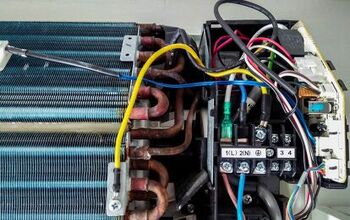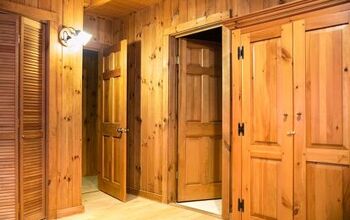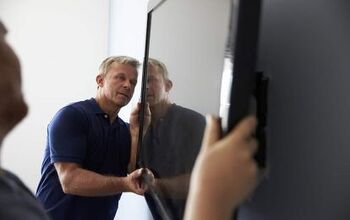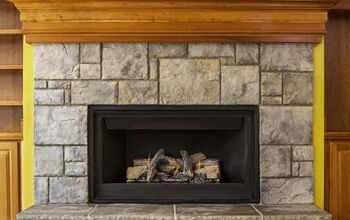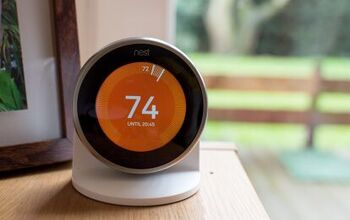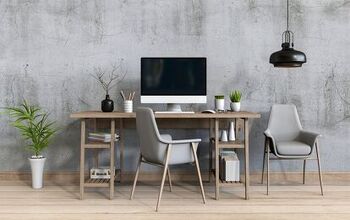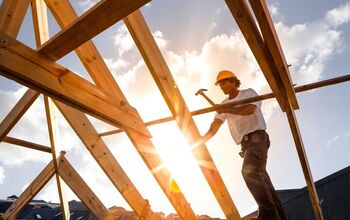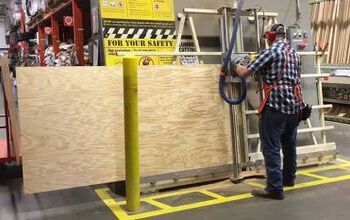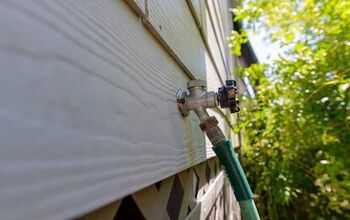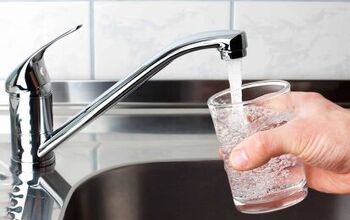Home Safety Guide For Elderly Relatives

Many people want to help their elderly relatives remain safe in their homes. Everything from safety and accessibility to engagement is important to consider during this process. That’s why we put together a comprehensive home safety guide to help make your elderly relatives' day-to-day life as safe as possible.
Home safety precautions like non-slip treads and sensor-activated lights are essential for homes with seniors. You must go room by room and eliminate tripping hazards like ottomans, low tables, rugs, and loose cords. Introduce smart devices like the Ring Video Doorbell and Amazon Alexa to make everyday tasks easier for your senior relatives.
You can help your elderly relatives feel more comfortable at home if you put non-slip tread on the stairs. Follow along as we take a deep dive into our home safety guide for elderly relatives.
How To Make A Home Safe For Seniors
1. Remove Stair Hazards
Does your elderly relative have wooden stairs? If so, that is a major slipping hazard that you must address right away. Luckily, you can find non-slip mats in several sizes that you can attach to each step.
The bottoms of them are adhesive and easily stick to wooden surfaces. However, it simply isn’t safe for some senior citizens to walk up and down the stairs. In that case, it’s worth the cost to invest in a chair lift system.
It costs an average of $6,000 to install a chair lift, but it can cost up to $20,000. The cost varies based on the size of the staircase and which system you choose.
2. Medical Alert Devices
Medical alert devices are essential for your elderly relatives. Today, countless affordable options are available and easy to use without experience. A recent study shows that 39% of adults with senior parents plan to buy medical alert systems.
This is a testament to how effective they are, and how much peace of mind they offer. They aren’t invasive and these devices don’t get in the way. All you do is put it on and use the device to alert medical emergency staff of your injuries.
3. Set The Shower Up
It’s all too easy to slip in the shower, no matter what age you are. Shower falls are extremely dangerous, especially if someone is home alone and without a medical alert device. You can make the shower much safer for your relatives if you install grab bars.
This gives them something to hold onto while they get in and out of the shower. They are easy to install without professional help, but any handyman or plumber can do it for you. It’s also a great idea to put non-slip shower mats in the bathroom.
You can put several mats in the shower and outside the shower. The bathroom floor outside of the shower gets wet from the humidity, so you must protect that as well.
4. Remove Tripping Hazards
Tripping hazards are dangerous in any home, but that’s especially true for seniors. Everything from rugs and cords to piles of laundry can cause dangerous falls. You can help protect your elderly relatives if you bundle and tie cords so they’re out of the way.
Ideally, you should place the cords behind a piece of furniture, so they can reach outlets without getting in the way. Remove rugs that can easily bunch up and trip somebody. Otherwise, you can stretch them out and tape them to the ground.
Dogs and cats are tripping hazards as well, but that doesn’t mean you should get rid of them. Instead, you should limit the time they can roam freely. For example, it’s a good idea to put your senior relatives’ pets in a room with food, light, and water at bedtime. That way, your relative won’t trip over them in the dark.
5. Simplify The Kitchen
You can make your senior relative’s life easier if you simplify their kitchen. It’s naturally hard for some people to reach things on high shelves or deep back against the walls. Simplify things by reorganizing cabinets and moving things closer to the front.
Move everything from the top shelves to the bottom shelves. You can even take things from the top shelves and put them on the countertops. Keep everything organized, so the counters don’t look cluttered.
Replace the hardware in the kitchen with knobs that are easy to pull open. Avoid small knobs that are hard to grip and see.
6. Purchase Smart Devices
Smart devices make life at home easier for everyone, and that’s especially true for senior citizens. Everything from Amazon Alexa and Nest thermostats to Ring video doorbells can make simple tasks easier. The Ring video doorbell especially provides peace of mind and makes it easier to deal with guests and deliveries.
You can even find smart pill dispensers that make it easy to take daily medication. Simply program the device to dispense pills at the correct times each day. Respiratory problems are common amongst many seniors, and devices like the Amazon smart air quality monitor work wonders to help.
7. Lower The Bed
Beds that sit high off the floor carry boundless potential for injury, and they aren’t worth the risk. Ideally, you should either lower the bed or buy a new bed with an adjustable height. That way, your relative can adjust the height as needed to suit their comfort and safety.
It also helps to move the side of the bed closer to the wall. This ensures that they won’t fall straight onto the ground in case of an accident. Today, you can even find specialized beds meant to provide relief from back pain.
They are firm enough to provide support without being uncomfortable. Make sure to wash their bedding at least 1-2 times per week if they are unable to themselves. This will help combat allergies and promote great hygiene.
8. Stay Up To Date On Battery Changes
Smoke and carbon monoxide detectors are useless if the batteries are dead. Because of their location, these protective devices are out of reach for some seniors. You can help your relatives if you change the batteries in their smoke and carbon monoxide detectors yearly.
Ideally, you should test the batteries every 6 months to make sure they are responsive. Smoke detectors only last 10 years, so you should replace them if they’re near that age. Install a smoke detector on each level of their house for the best coverage.
9. Telehealth Access
It’s easier for some seniors to speak with their doctors remotely instead of visiting the hospital. Luckily, telehealth services are more available than ever. You can make it easy for your elderly relatives to receive great medical care if you set up easy forms of communication.
Easy-to-use smartphones, tablets, and computers are the best options. Granted, some seniors may not want the latest, most advanced devices. Choose something simple and walk them through the steps if they have difficulty with it.
10. Sensor-Activated Lights
Life at home is much easier if you don’t have to fumble around in the dark for light switches. Sensor-activated lights remove this problem and remove many of the hazards of getting up at night. You can place them under a bed, on the walls, and in any room of the house.
They run on LEDs, so they will last for years to come. These lights are perfect for vision-impaired seniors or anyone who understandably gets uncomfortable in the darkness.
Summing It Up
You can make your elderly relative’s home safer with medical alert devices and sensor-activated lights. It’s important to place non-slip treads on the stairs and non-slip mats in the bathrooms to prevent falls. Eliminate hazards like tall beds, rugs, cords, and clutter that can make it dangerous to walk around in the dark.
Related Guides:

Nick Durante is a professional writer with a primary focus on home improvement. When he is not writing about home improvement or taking on projects around the house, he likes to read and create art. He is always looking towards the newest trends in home improvement.
More by Nick Durante












